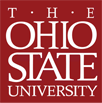« Go back to e-newsletter overview
EcoSummit 2012 E-Newsletter: June 2012
Welcome to Columbus: Building a Sustainable Neighborhood
Weinland Park is a neighborhood not far from Downtown Columbus with a strong working class background that took its hits when manufacturing and other businesses either closed shop or moved to the suburbs. Housing in the area suffered right along with the income of Weinland Park residents.
Now, Weinland Park is in the midst of a comeback. The area has seen new home construction for the first time in decades and some of the old vacant homes have been restored to their former beauty.
To the untrained eye the redevelopment of Weinland Park has the feel of most every other urban restoration project. But a closer look reveals backyard gardens and community lots that will put food on the tables of the neighborhood’s residents and hopefully form the basis of a new business model that will make Weinland Park a food supplier far beyond the area’s few city blocks.
“The goal is to have a publicly accessible garden within a quarter mile of every resident of Weinland Park,” according to Brian Williams who helps oversee the greening of the neighborhood in his work as an agricultural specialist for the Mid-Ohio Regional Planning Commission. Williams explains, however, that the urban garden plots are just the first step in an innovative effort to make the neighborhood a center of garden-to-table education and entrepreneurship.
The centerpiece of these efforts is the site of a burned-out factory that long ago closed and stood abandoned. The plan is to redevelop the site into a retail outlet for locally grown produce and for a business focused on processing locally raised produce that could be sold across the region.
“We’re looking at this as a new way of thinking of food in the inner city,” said Williams. “We are focused on providing healthy food for the residents, but we are also looking at it as a source of income and jobs. In fact, we think it will also become a type of community center where people can come to enjoy the fruits of their labor.”
The project’s start-up is funded by an $864,000 Community Challenge grant from the U.S. Department of Housing and Urban Development, matched by over $500,000 in additional resources donated by community institutions. The funding has been used to draw together a broad coalition of partners including Wagenbrenner Development, Local Matters (a non-profit dedicated to providing good nutrition), and the Godman Guild (a local social services provider).
Through Ohio State University Extension’s University District office and partner colleges, residents receive computer training, find jobs, earn their GEDs, do their taxes, manage their money, and learn about going to college.
Williams explains that the project will produce plans for a mix of physical facilities and educational programs that will make the production, processing, distribution, preparation and celebration of food a central feature of the neighborhood. He adds: “It’s not just about growing food. There’s a food-processing component to this. So if somebody has an idea for a sauce, they could do this there and have a kitchen.”
Williams said, “We want to create jobs, but we also want to create opportunities.”
Weinland Park will be featured at EcoSummit 2012 Workshop 2 entitled 'Weinland Park in Columbus, USA: One neighborhood’s perspective on developing ecotechniques for stormwater management,' It is being organized by Susan Weber, Integrity Sustainable Planning and Design, Columbus, and will focus on specific stormwater management strategies used in several collaborative projects in the urban neighborhood. This Workshop 2 will be held from 10:30 am to 12:30 pm on Monday October 1 at EcoSummit 2012.
See other articles in the June 2012 newsletter:
- Letter from the EcoSummit 2012 Host Committee Chair
- A Field Trip to Stone Lab
- Where Science and Policy Meet
- E.O. Wilson Draws the Connections Between Mankind and Forest Floor





